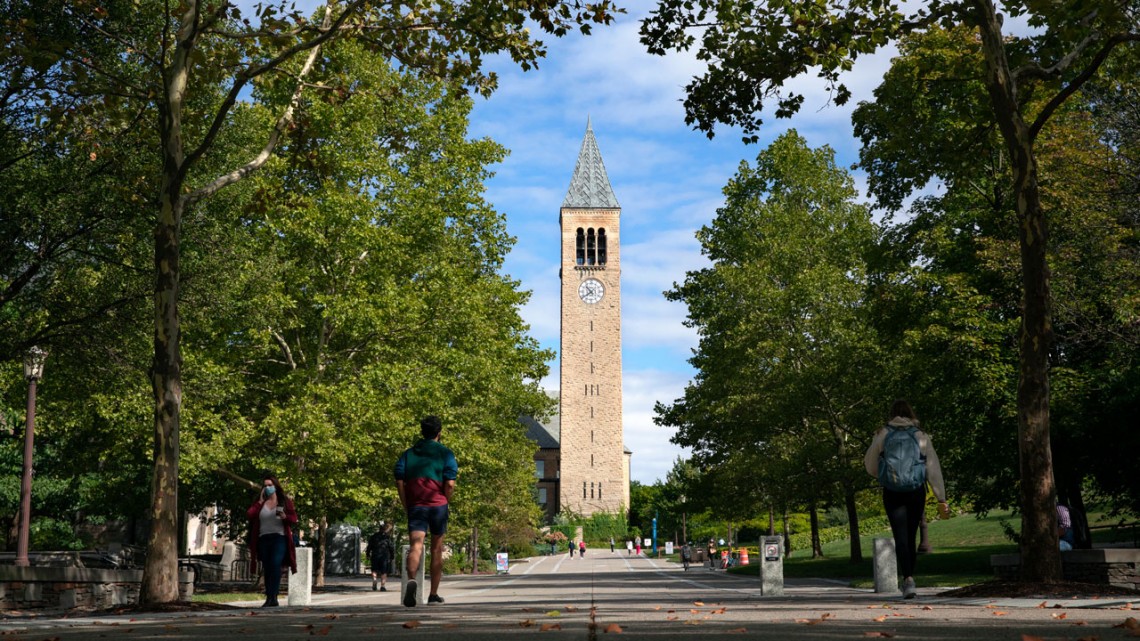
Students walk toward Ho Plaza from Collegetown.
Fundraising campaign includes focus on affordability
By Melanie Lefkowitz
True to its revolutionary founding mission of “… any person … any study,” Cornell is launching a sweeping new initiative aimed at making its education even more accessible, to ensure that the most talented students from all socioeconomic backgrounds are fully equipped to lead, thrive and tackle their generation’s greatest challenges.
The initiative is a key element of “To Do the Greatest Good,” the new five-year, $5 billion fundraising campaign launched Oct. 21.
“Ezra Cornell understood something that was as true then as it is now: that educating one student reaches generations of others,” President Martha E. Pollack said in the campaign launch video. “He understood that the impact of a community seeking truth for its own sake, and knowledge for a public purpose, would go far beyond those who were directly part of that community. And he realized that the best way to build a better world was to invest in the people with the potential to build it.”
To that end, Cornell seeks to:
- Grow by 1,000 the number of aided lower- and middle-income undergraduate students;
- Reduce student debt for middle-income undergraduate students by 25%, an average of $5,000 per student; and
- Waive one summer’s earnings expectation – part of the student’s expected contribution – for lower-income undergraduates, replacing it with an additional Cornell grant enabling them to pursue low-wage or unpaid summer internships or research experiences.
The affordability initiative builds on Cornell’s commitment to ensuring that the university is accessible and affordable to all. Cornell’s total annual institutional grant aid has more than tripled in the last 20 years. In fiscal year 2021, Cornell awarded $297 million in grant aid; $322 million is budgeted for grant aid for fiscal year 2022.
With an undergraduate population of more than 15,000, the university already educates more lower- and middle-income students than any other Ivy League institution – and has more students receiving financial aid than the entire student bodies of some smaller universities. Cornell provides need-blind admissions for domestic students and packages of grants, loans and work study that meet the full estimated cost of attendance, including room and board. With the campaign, Cornell acknowledges the need to do even more.
“Our commitment to being a place for ‘any person’ is central not only to our institutional identity, but also to our ability to be a world-class university: one that attracts the very best students at every level,” Pollack said. “For us to remain true to our Cornell mission, and competitive with our peers, we need to do more to honor that commitment.”
Media Contact
Get Cornell news delivered right to your inbox.
Subscribe

